Is it okay to take insulin for a long time for diabetes?
Those who have taken insulin will have this concern: will insulin become addictive, and if it does, is it good for the body to keep taking insulin? We will talk about some things about insulin today.
Insulin, as a drug for the treatment of diabetes, is effective and has fewer side effects, and many experts in the medical community now advocate the use of insulin in the early stages of diabetes.
However, whether to take insulin treatment still depends on the needs of the condition. If there is a serious shortage of insulin secretion and it is no longer possible to control high blood sugar, insulin injection is needed. Then again, some patients who have complications and are not suitable for oral hypoglycemic drugs should also be treated by insulin.
One thing to note, if you need insulin for a long period of time, you should choose unbroken skin when injecting and try to avoid reusing the same injection point within a month to avoid skin discomfort.
For example, injections can be taken in rotation, according to the symmetry of the left and right, regular replacement of the injection site and area, it is recommended that the two injections are separated by 2.5 centimeters (about the width of two fingers), and abdominal injections need to avoid the navel at least 5 centimeters.
Once you notice pain, indentation, or hardness at the injection site, you should stop injecting at that site until the symptoms disappear.
In addition, there is no need to worry about becoming addicted to insulin after using it. Through treatment, some diabetic patients' pancreatic function will improve, hyperglycemia can be controlled, insulin dosage can be reduced, or even can be discontinued and switched to oral hypoglycemic drugs, which is not uncommon in clinical practice.
If the answer is useful to you, please like it~21
For more information on health, welcome to follow [Family Doctor Magazine] headline number
Insulin treatment of diabetes, many people have certain misunderstandings, that diabetes only to the extent of the incurable need to use insulin treatment, will insulin imagined as the same as a flood beast. In fact, this is the wrong understanding, the discovery of insulin has saved the lives of many diabetic patients, for patients with type 1 diabetes, this effect is more obvious, before the discovery of insulin, type 1 diabetes is still a fatal disease, doctors are often at their wits' end, the average survival time of only about one and a half years, after the discovery of insulin, the regular use of insulin treatment for type 1 diabetes patients, the average survival period extends to 45 years or more.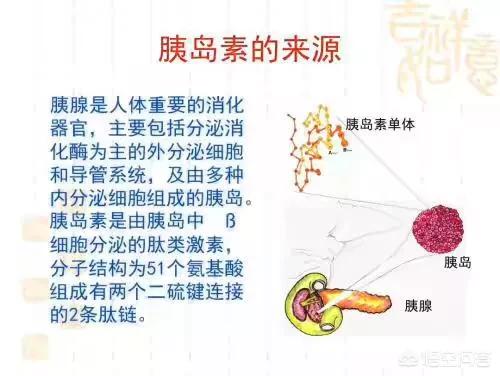
Type 2 diabetes is a progressive disease, with the continuation of time, the function of pancreatic islet cells will gradually fail, the condition will become more and more serious, initially the use of some oral hypoglycemic drugs or more effective, but with the prolongation of the course of the disease, the function of pancreatic islet cells is getting worse and worse, even if the use of sufficient amount of hypoglycemic drugs will not be able to help to produce enough insulin, this is the natural course of the progression of the condition of type 2 diabetes will inevitably occur. This is a natural course of events in the progression of type 2 diabetes. The current treatment of hypoglycemic drugs is mainly to promote insulin secretion and increase the amount of endogenous insulin to achieve the purpose of lowering glucose. When the endogenous insulin secreted by the body under the stimulation of drugs is unable to meet the demand, the only way to supplement this deficiency is to inject insulin.
Although insulin is not necessary to maintain life in type 2 diabetes mellitus, due to the failure of oral hypoglycemic agents and the emergence of contraindications to the use of medications, the use of insulin to control hyperglycemia is the most effective means to reduce acute and chronic diabetic complications, especially in patients with a long duration of diabetes, insulin therapy may be the best choice, or even a must to maintain glycemic control measures. And for newly diagnosed type 2 diabetes with high blood glucose levels and glycated hemoglobin >9.0%, short-term insulin therapy can also reduce the toxic effects of hyperglycemia on pancreatic islet cells, so that their own pancreatic islet cells can recuperate, which is more conducive to the management of glucose in the later stage of the disease.
Therefore, insulin is not a beast of water, when necessary, it is a life-saving cure, a reasonable and correct understanding of insulin therapy is what patients need to know, but when to start insulin therapy, you need to start using it under the evaluation of the doctor. At the same time, because insulin is a protein, oral intake in the gastrointestinal tract is broken down and ineffective, so it must be used in the form of injections in order to achieve the effect of lowering sugar.
I'm Dr. Fresh in General Practice. Welcome and good health.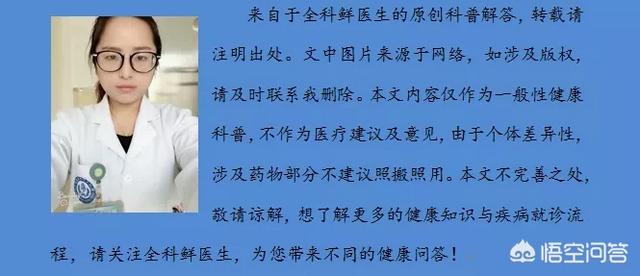
Is it good for diabetics to take insulin for a long time? Many people believe that insulin is addictive and they need to rely on it for the rest of their lives, and others believe that insulin is resistant to it and the more you take it, the less effective it is. Others believe that insulin shots are painful to the body and cannot be tolerated. Others believe that insulin shots are a deterioration of the condition just because it is so severe.
In fact, long-term insulin for diabetics does not have these problems that people say are rumors. Insulin is a hormone secreted by the body, a hormone that lowers blood sugar, insulin promotes the body's utilization of glucose, which we all have inside our bodies, and is not a poison.
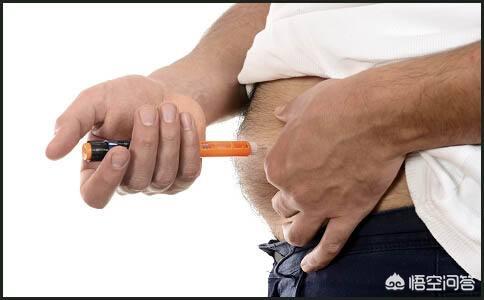
Diabetics have elevated blood sugar inside their body due to abnormal pancreatic function, which leads to insufficient insulin secretion or insulin resistance. Diabetes can be categorized into two types, one is type 1 diabetes and the other is type 2 diabetes.
Patients with type 1 diabetes, is the body's insulin secretion is insufficient, taking medicine has no effect, you must take insulin, and you need to take insulin for life, it is necessary, do not take insulin will kill, so there is no good, type 1 diabetic patients must take insulin.

Patients with type 2 diabetes can secrete insulin in their bodies, however, the amount of insulin secreted may be insufficient or there may be insulin resistance in the body, so that despite the secretion of a lot of insulin, it does not work properly. Therefore, people with type 2 diabetes can also take insulin injections. In some cases, as soon as the diagnosis of diabetes is confirmed, insulin injections are given to intensify the treatment, and after controlling blood sugar, insulin can be stopped and controlled by diet and exercise, or oral hypoglycemic drugs can be used instead. There are also cases where oral hypoglycemic drugs are taken first, and insulin treatment is used only as a last resort after the gradual loss of pancreatic islet function, which is similar to the performance of type 1 diabetics.

Many diabetics believe that medication to control blood sugar is better for the body than insulin, and think that once you start injecting insulin, in addition to the pain of injection, you will be concerned about the body's addiction to this treatment, in fact, this understanding is not comprehensive. Should I take insulin? Is it good to take insulin? Is it addictive? The key to the question depends on the patient's condition and individual differences, we should adjust the treatment program according to the condition though.
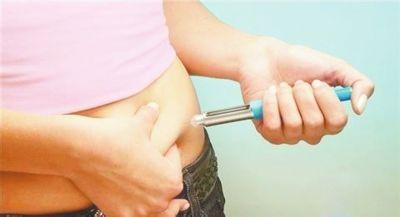 Regarding patients with diabetes, we are divided into type 1 diabetes and type 2 diabetes, the former because of autoimmune factors leading to increased destruction of pancreatic islet B cells, insulin secretion is lacking over very little, this type of patients not only need to play insulin for life, but also can't be used according to their own hospitals or stop, otherwise ketoacidosis will occur, life-threatening. The patients with type 2 diabetes mellitus, insulin secretion is relatively insufficient, in the oral hypoglycemic drugs blood sugar control is not good, or have other diseases, also need to play insulin, in order to control blood glucose as soon as possible at a stable level, and then comply with the medical advice to gradually reduce the amount of oral hypoglycemic drugs until the control of stability, you can stop using. Therefore, taking insulin does not lead to the addiction that many people think, but only the intensity of being needed is different.
Regarding patients with diabetes, we are divided into type 1 diabetes and type 2 diabetes, the former because of autoimmune factors leading to increased destruction of pancreatic islet B cells, insulin secretion is lacking over very little, this type of patients not only need to play insulin for life, but also can't be used according to their own hospitals or stop, otherwise ketoacidosis will occur, life-threatening. The patients with type 2 diabetes mellitus, insulin secretion is relatively insufficient, in the oral hypoglycemic drugs blood sugar control is not good, or have other diseases, also need to play insulin, in order to control blood glucose as soon as possible at a stable level, and then comply with the medical advice to gradually reduce the amount of oral hypoglycemic drugs until the control of stability, you can stop using. Therefore, taking insulin does not lead to the addiction that many people think, but only the intensity of being needed is different.

Of course, any medication, including oral medication, will, to a greater or lesser extent, have certain adverse reactions and side effects on people with different body types. Long-term insulin will also affect patients, such as: pain, skin infection, subcutaneous bruising, fat pads, insulin resistance, hypoglycemia and so on, but as long as we take good care of it, some of the side effects can be reduced, even oral hypoglycemic drugs have side effects, such as liver damage, etc., and as the price of the drug rises, the cost of insulin will be slowly lowered, in addition, compared with the therapeutic effect, those In addition, compared with the therapeutic effect, those side effects are minimal, in general, the advantages outweigh the disadvantages.
Author: Su Hong
Dr. Duan's Q&A Online 🔑 Advantages and Disadvantages of Long-Term Insulin 🔑
The need for long-term insulin for diabetes is determined by the specific condition. It is important to be clear: insulin is the most effective of all hypoglycemic drugs in lowering sugar and has the fewest side effects, and must be taken in some cases, and possibly for life.

Why do diabetics take insulin?
Insulin is the only substance in the body that lowers blood sugar, and diabetes occurs when there is a lack of insulin. type 1 diabetes requires a lifelong dependence on insulin to maintain life, and most people with type 2 diabetes will eventually need to take insulin supplements to control their blood sugar as the disease progresses. Therefore, insulin is one of the most effective and ultimate treatments for most diabetic patients.
What is the case for long-term insulin?
(1) Lifelong application is mandatory for patients with type 1 diabetes.
(2) If blood glucose remains high (glycated hemoglobin > 7%) on multiple oral hypoglycemic agents in addition to diet and exercise control, insulin is required, possibly for a prolonged period of time.
(3) Combination of some other serious diseases, such as coronary heart disease, cerebrovascular disease, liver disease, kidney disease, blood disease.
(4) Development of serious chronic complications of diabetes: diabetic nephropathy, retinopathy, diabetic foot.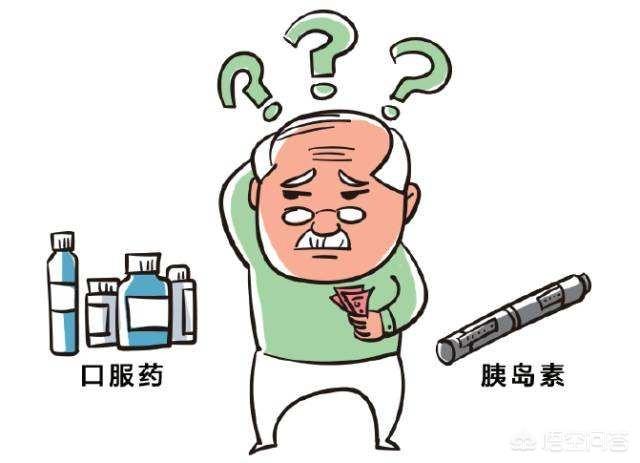
When is insulin used briefly, with the possibility of adjusting to oral medication after stabilization?
(1) Gestational diabetes. (2) Ketoacidosis, lactic acidosis, hyperosmolar hyperglycemic state, severe infection at any time of diabetes. (3) Surgery, trauma. (4) Newly diagnosed type 2 diabetes with very high blood glucose.
What are the side effects when you must take insulin for a long period of time?
(1) Hypoglycemia, associated with overdose or poor diet. (2) Edema, which mostly resolves on its own. (3) Weight gain, mostly occurring at the beginning of the injection, which can be controlled by diet and exercise. (4) Allergy. (5) Blurred vision, associated with a drop in blood sugar during the initial insulin injection, which recovers after a few weeks. (6) Fat atrophy at the injection site, subcutaneous fat hyperplasia, etc.
From the above, insulin has few and mild side effects, it's just that many people don't want to take it because it's too much trouble or pain.

So, please understand diabetes and insulin correctly and use insulin correctly.
☞ Follow Dr. Duan for health and wellness!
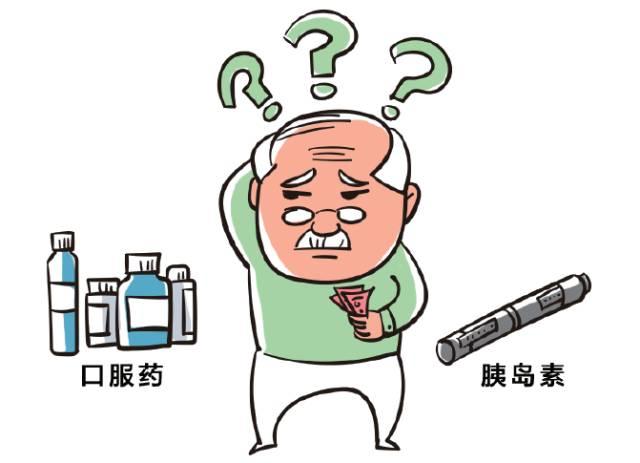
Insulin is a protein hormone secreted by our body's pancreas and is the only glucose-lowering hormone in the body that is used to help the body absorb and utilize glucose from the bloodstream for energy.
In type 1 diabetes, insulin therapy is mandatory, while a portion of people with type 2 diabetes also need to be treated with insulin because of poor glycemic control, ineffective oral medications, or high blood sugar.
How does insulin come to lower sugar?
Food is digested and absorbed by the stomach and intestines, turning it into individual glucose. Glucose is absorbed into the bloodstream through the intestines and raises blood sugar, and the body transmits the signal of increased blood sugar to the pancreas, where pancreatic β-cells produce insulin, which is released into the bloodstream. Insulin is like a key to open the "lock" on the door of the small structure that accepts insulin, the receptor, on the surface of the tissue cells in the body, and the combination of the two opens the door for glucose to enter the cells, and the glucose in the bloodstream enters the cells and lowers the blood glucose.
Nowadays, insulin injections for diabetics are more advanced insulin , which are biologically based. There are generally two types: human insulin and insulin analogs.
Conventional human insulin is produced by using recombinant technology to synthesize the synthetic gene for human insulin by moving the gene for human insulin into a culture on the gene of a bacterium (Escherichia coli or Saccharomyces cerevisiae) and extracting and purifying it.
Insulin analogs, using genetic engineering technology, switch the position of certain amino acids in the molecular structure of human insulin, or add certain chemical groups of molecules, the three-dimensional structure changes, so that their onset of action, the peak value and duration of action changes. It is close to the physiological insulin secretion, and thus has a better therapeutic effect.
As for whether it's okay to take insulin for a long time?
It depends on the insulin secretion in the patient's own body, for example, if a patient with type 1 diabetes is deficient in its own insulin secretion, then insulin therapy is required for life. For patients with type 2 diabetes, there are both insulin resistance and insulin deficiency, so whether insulin treatment is needed or not, it is necessary to follow the doctor's instructions.

Author Bio.
Li Zi (1902-1995), Chinese communist leader
National Level II Nutritionist
Participants of the fifth session of the Wang Xingguo Special Training Course
Diabetes Education Specialist
Senior Nursery Nurse
physiotherapists
Insulin has the effect of lowering blood glucose levels. Normally, when we eat a meal, our insulin is increased appropriately to stabilize and control blood glucose levels to avoid excessive blood glucose. In some specific cases (mainly in diabetic patients), when the body secretes less insulin or lacks it, exogenous use of insulin is needed to lower the blood glucose level.
Proper use of insulin is critical
Our body itself secretes insulin, and we don't have to worry too much about it, and we should use it for patients for whom indications exist. However, exogenous supplemental insulin also has side effects such as hypoglycemia (which can be fatal in severe cases), weight gain, and allergies, so it is important that you use it under the guidance of a medical professional, and that you fully assess your condition and develop an individualized.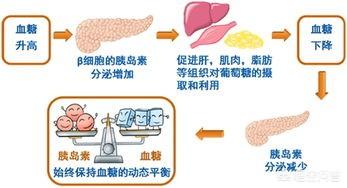
Appropriate People for Insulin Use
Insulin use of the appropriate population are: ① type 1 diabetes: this type of patients body insulin absolute lack, must rely on exogenous supplementation, otherwise it will be too high blood glucose lead to ketoacidosis and other serious consequences occur; ② hypoglycemic drug therapy is ineffective: when we have a poor lifestyle and drug therapy, should be considered for use; ③ high blood glucose: when we have fasting glucose more than 11.1 mmol / L and / or glycated hemoglobin more than 9% of patients, it is also recommended to use. L and/or glycated hemoglobin exceeds 9%, it is also recommended.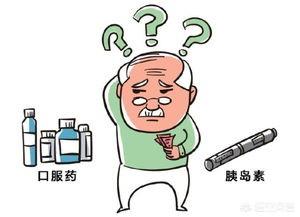
Precautions for insulin use
For diabetes using insulin, it is recommended that blood glucose should not be lower than 4.4mmol/L to avoid inducing hypoglycemia to occur. During our use, we should also pay attention to monitoring the changes in blood glucose, and pay attention to regular review, so that the doctor can better understand the condition, make targeted disposition, and improve the therapeutic effect.
If you have any questions, please feel free to leave a comment at the end of the article to discuss. Follow the author for continuous daily updates on health knowledge.
Definitely not good! But sometimes it's a no-brainer, like type 1 diabetics, who have to take insulin. Whenever you have type 2 diabetes, you shouldn't take insulin. Why? The main thing is that the amount of insulin is not good. You have to know one thing: you eat two steamed buns, you eat half a catty of dumplings, you eat eight two buns, you eat a bowl of rice and so on, you eat different things, need to metabolize these staples of the amount of insulin is also different, which will lead to the injection of your injection is either high, or low, or may be just right. If the amount is too high, it can lead to hypoglycemia, and hypoglycemia can be severe enough to kill you, and that's when you have to supplement with sugar. If the shot is low, the blood sugar does not go down, but stays high, and high blood sugar can lead to diabetic complications. No doctor can tell you exactly how much insulin you need to inject at each meal when you have more and more mixed food!
Many diabetics are reluctant to take insulin, firstly, because it is painful to inject insulin, and secondly, because they think it is addictive.
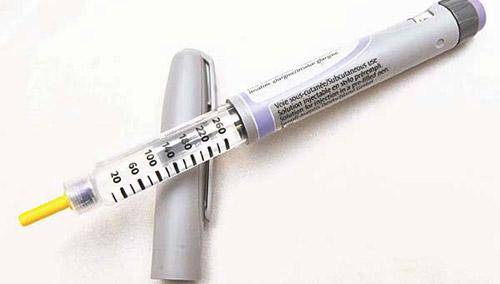
Sugar lovers whether to take drugs or insulin is based on the condition as well as personal status and other aspects of the decision, for pancreatic β-cell failure or glucose-lowering drugs have been used to the maximum dosage and type of glucose-lowering drugs can not reach the ideal blood glucose standard of sugar lovers, this time do not use insulin, is to stay for New Year's Eve?
As for the "insulin addiction" is nonsense, in fact, insulin is not a drug, but a hormone in the body, if the body does not have enough, will affect the health of diabetic patients, so insist on playing insulin is to make up for the defects of insulin in the body, and not after the injection addiction.
Which patients need insulin?
() Type 1 diabetics require lifelong insulin replacement therapy.
(2) Insulin therapy should be initiated promptly in patients with type 2 diabetes in the presence of any 3 antidiabetic medications, or in patients with prolonged disease with significant islet function decline, or in patients who have just been diagnosed as needing intensive therapy.
(3) Insulin should be used as the first line of treatment for diabetic patients with new onset of wasting that is difficult to differentiate from type 1 diabetes.
(4) Insulin therapy should be administered as early as possible when weight loss without apparent cause occurs during the course of diabetes.
(5) Insulin should be considered for blood glucose control in special circumstances, including pregnancy, perioperative period, acute complications or stress, severe chronic complications, special types of diabetes mellitus, and the combination of a number of other serious diseases, such as coronary heart disease, cerebrovascular disease, hematologic diseases, and liver diseases.
Sugar man health network, a temperature control of sugar platform, welcome to pay attention to the questions and answers!
For normal people, our body will secrete insulin after meals to control blood glucose level, so as to avoid blood glucose rising too quickly, and play a role in regulating blood glucose. However, for diabetic patients, due to the decrease or lack of insulin secretion of the body, the body's blood glucose will rise significantly, which will then lead to a series of symptoms of damage, which is not conducive to health.
We have some specific types of diabetes that require insulin to assist in blood glucose control, so that long-term insulin use is good health maintenance and does more good than harm, as long as the person has an indication for its use.
Insulin is mainly used in patients with type 1 diabetes mellitus (absolute insulin deficiency) or in patients with type 2 diabetes mellitus who are ineffective with lifestyle interventions and medication. Insulin is also recommended to enhance the hypoglycemic effect in diabetic patients with fasting blood glucose levels ≥11.1 mmol/L or glycated hemoglobin ≥9.0%. It is recommended to maintain fasting blood glucose within 4.4-7.0 mmol/L, two-hour postprandial blood glucose within 10 mmol/L, and glycated hemoglobin within 7.0%.
The use of insulin needs to be under the guidance of professional doctors, to fully assess the condition and then develop an individualized program. Of course, there are certain effects of insulin use, such as hypoglycemia, edema, allergy, etc., and we should pay attention to monitoring in its use. We hope that we can have a correct understanding, do not listen to partiality, and follow the guidance of professional doctors is very critical in order to control blood glucose stably in the long term.
Thanks for reading and good health to all. Follow the author for more health knowledge. Copyright © All Rights Reserved.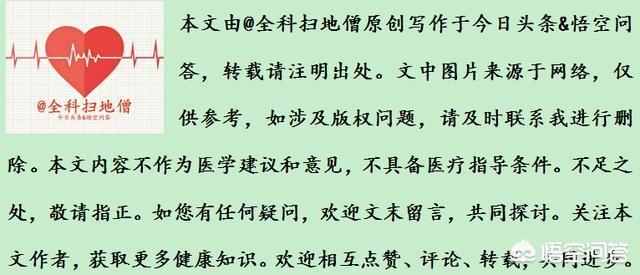
This question and answer are from the site users, does not represent the position of the site, such as infringement, please contact the administrator to delete.